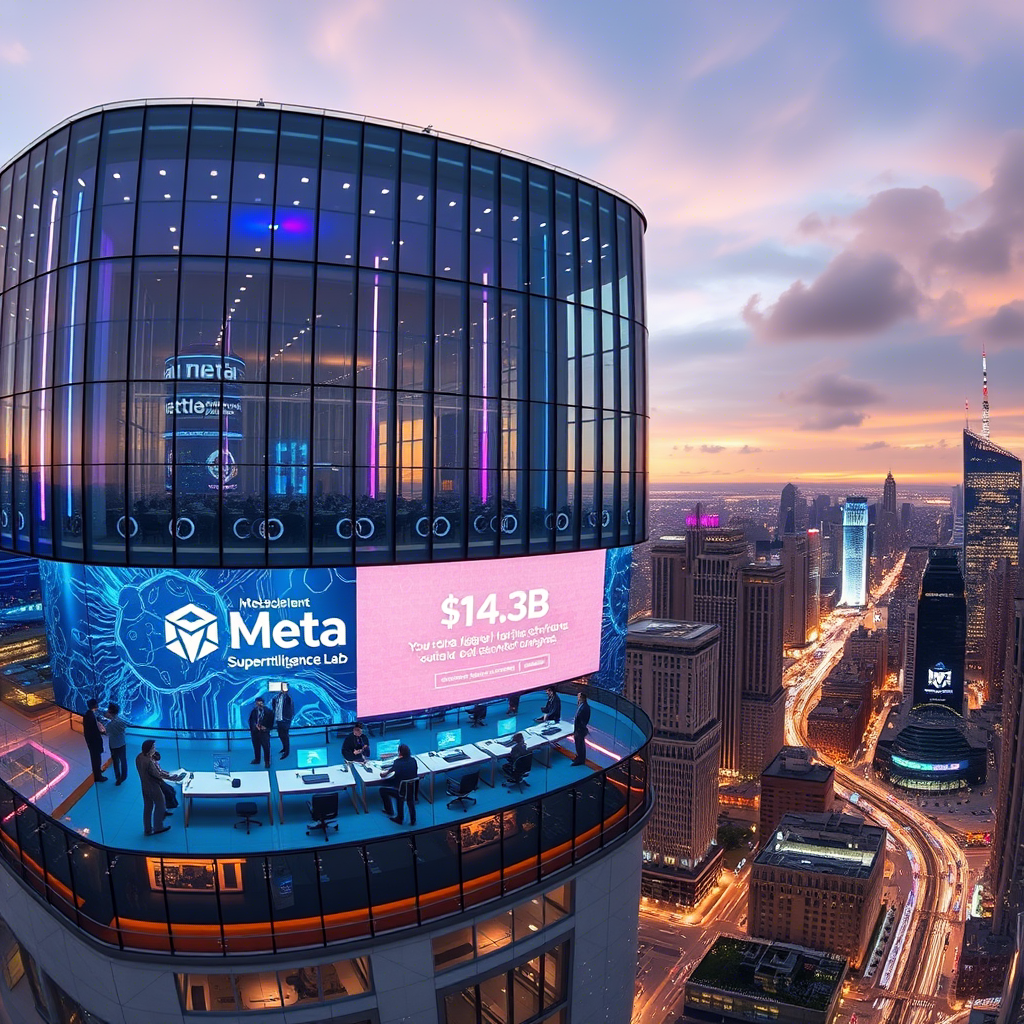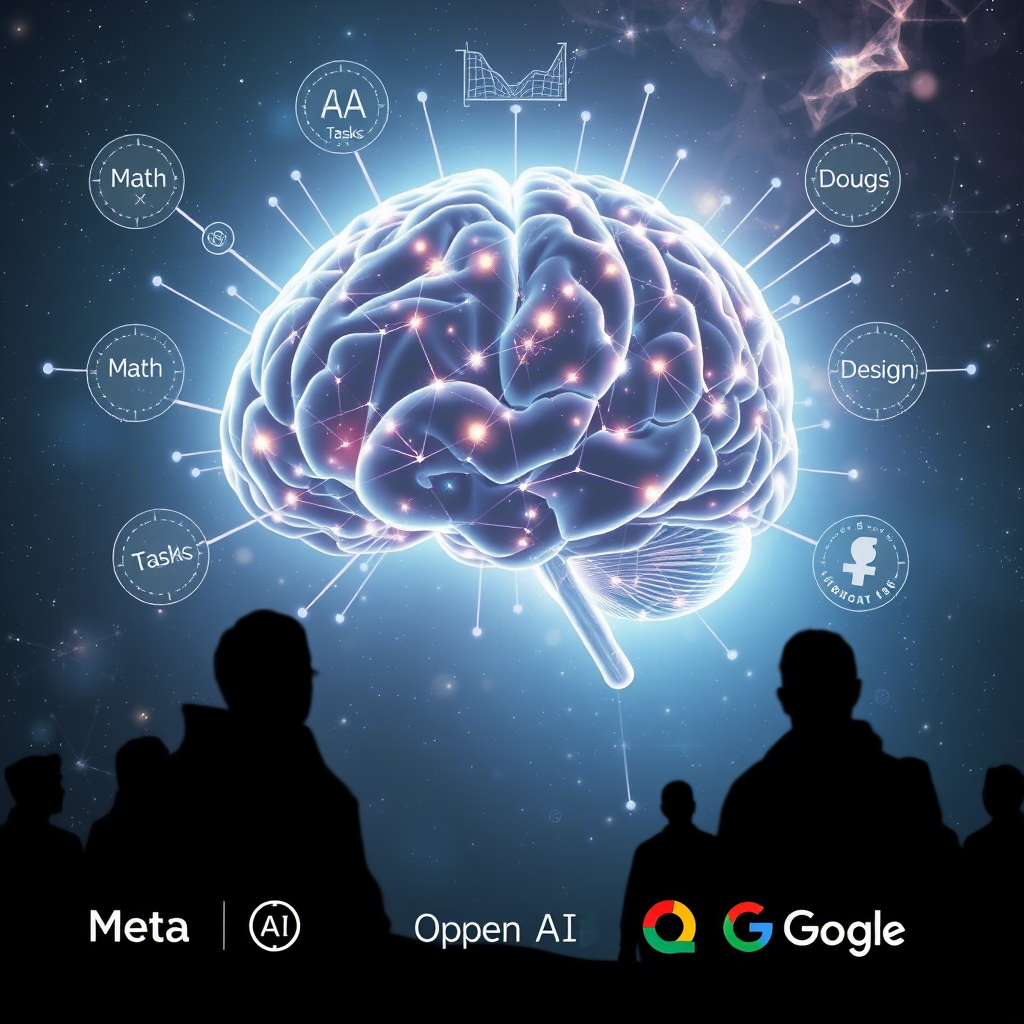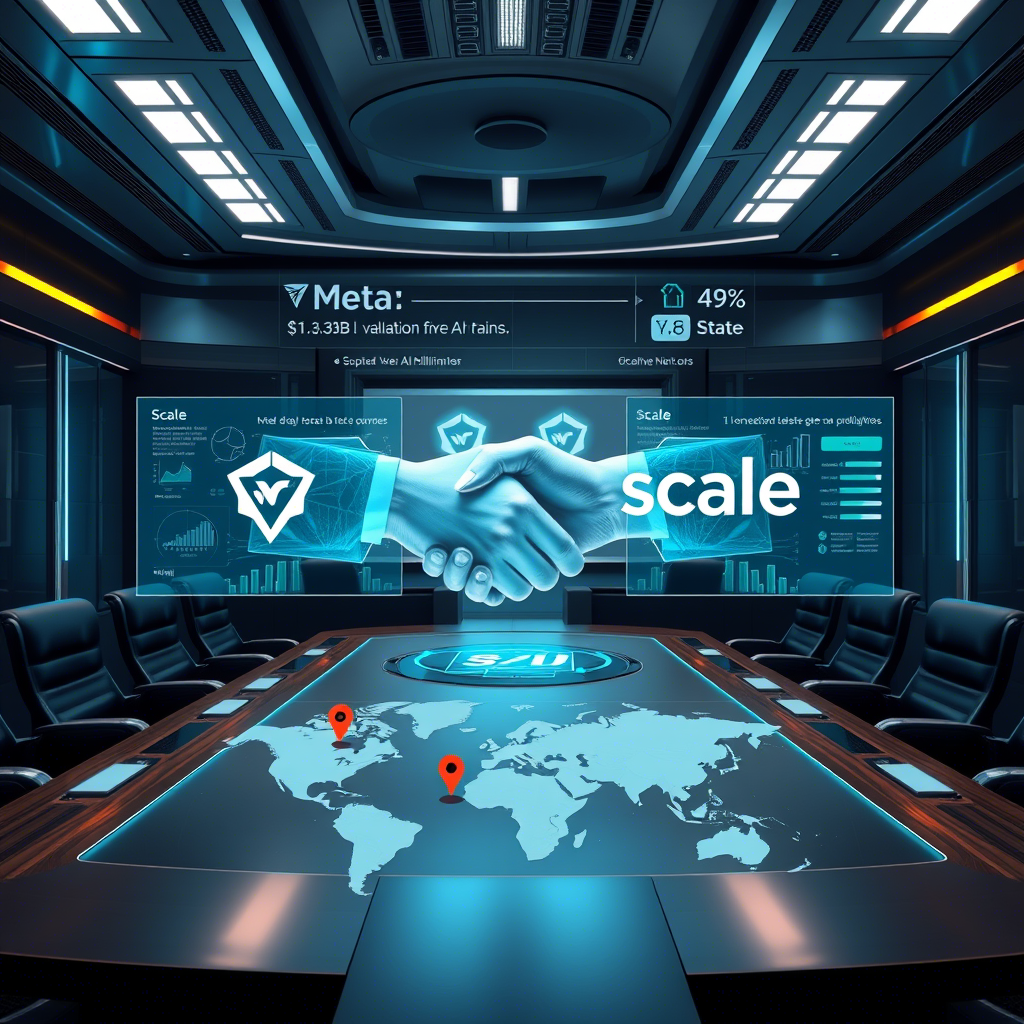In a bold move to reclaim its position at the forefront of artificial intelligence (AI) innovation, Meta announced on June 10, 2025, the creation of a new AI research lab dedicated to pursuing “superintelligence”—a hypothetical AI system that surpasses human cognitive abilities. This initiative, led by Scale AI founder and CEO Alexandr Wang, is backed by a staggering $14.3 billion investment in Wang’s startup, marking Meta’s second-largest deal ever, surpassed only by its $19 billion acquisition of WhatsApp in 2014. As Meta grapples with internal challenges and fierce competition from rivals like OpenAI, Google, and Anthropic, this strategic pivot signals a high-stakes bet on a futuristic vision of AI that could redefine the global technological landscape.

The Vision of Superintelligence
The term “superintelligence” refers to an AI system that exceeds human intelligence across all tasks, going beyond the concept of artificial general intelligence (AGI), which aims to match human capabilities. While AGI remains a nebulous goal with no clear timeline, superintelligence is an even more ambitious and speculative frontier. Critics, including AI researcher Dr. Margaret Mitchell, argue that comparing machine and human intelligence is fraught with ambiguity, as intelligence is not a singular, quantifiable metric. Yet, industry leaders like OpenAI’s Sam Altman and Elon Musk have fueled the narrative, predicting superintelligence could emerge within years. Meta’s embrace of this term reflects both a branding strategy and a genuine aspiration to leapfrog competitors in the AI race.
Meta’s new lab aims to tackle this challenge by assembling a team of approximately 50 top-tier researchers and engineers, offering compensation packages ranging from seven to nine figures to lure talent from companies like OpenAI and Google. The lab’s formation comes at a critical juncture for Meta, which has faced setbacks in its AI division, including employee turnover, lackluster product launches like Llama 4, and philosophical divides among its leadership. Chief scientist Yann LeCun’s skepticism about large language models (LLMs) as a path to AGI has created internal tensions, prompting CEO Mark Zuckerberg to seek fresh perspectives.

Alexandr Wang: The Young Visionary
At the heart of Meta’s strategy is Alexandr Wang, a 28-year-old MIT dropout who became the world’s youngest self-made billionaire at age 24. Wang co-founded Scale AI in 2016 with Lucy Guo, transforming it into a critical player in the AI ecosystem by providing high-quality labeled data for training AI models. Scale’s clients include industry giants like OpenAI, Microsoft, and government agencies such as the U.S. Department of Defense. With $870 million in revenue in 2024 and projections to reach $2 billion in 2025, Scale AI has cemented its role as a backbone of the AI boom.
Wang’s reputation as an ambitious, well-connected entrepreneur makes him an ideal candidate to lead Meta’s superintelligence efforts. His connections run deep, including a past stint as roommates with OpenAI CEO Sam Altman and appearances alongside him at high-profile events like President Donald Trump’s inauguration in January 2025. Wang’s advocacy for U.S. AI investment, exemplified by a Washington Post ad urging Trump to prioritize AI to counter China’s advancements, underscores his strategic vision. However, his lack of a traditional AI research background raises questions about his ability to steer a lab focused on cutting-edge innovation. To address this, Meta is recruiting seasoned researchers like DeepMind’s Jack Rae to complement Wang’s business acumen.

The Scale AI Deal: A Strategic Acqui-Hire?
Meta’s $14.3 billion investment secures a 49% stake in Scale AI, valuing the startup at $29 billion. The deal, structured with non-voting shares to avoid antitrust scrutiny, allows Meta to deepen its access to Scale’s data-labeling expertise while bringing Wang and a select group of Scale employees into its fold. Wang will remain on Scale’s board, with Jason Droege stepping in as interim CEO. Some analysts, like tech commentator Ben Thompson, describe the deal as an “acqui-hire,” suggesting Meta’s primary goal is to secure Wang’s leadership rather than Scale’s services alone.
Scale AI’s role in the AI ecosystem cannot be overstated. By employing workers in low-cost labor markets like Kenya, Venezuela, and the Philippines through its Remotasks platform, Scale has faced criticism for ethical concerns around working conditions and wages as low as $1 per hour. Despite these controversies, its data-labeling services remain vital for training complex AI systems, serving clients across industries from autonomous vehicles to LLMs. Meta’s investment not only strengthens this partnership but also positions it to leverage Scale’s infrastructure for its superintelligence ambitions.

Challenges and Ethical Considerations
Meta’s push for superintelligence is not without risks. The company’s AI efforts have lagged behind competitors, with its open-source Llama models failing to capture the same consumer enthusiasm as OpenAI’s ChatGPT or Google’s offerings. Zuckerberg’s frustration with these shortfalls has driven his aggressive recruitment and investment strategy, but the path to superintelligence remains uncertain. AI researchers like Subbarao Kambhampati emphasize that current AI tools, while powerful, require human oversight and are far from achieving AGI, let alone superintelligence.
Ethical concerns also loom large. The pursuit of superintelligence raises questions about safety and societal impact, as highlighted by former OpenAI chief scientist Ilya Sutskever’s Safe Superintelligence initiative. Meta’s standalone Meta AI app has already drawn scrutiny for privacy risks, with users potentially sharing private interactions publicly due to unclear settings. As Meta scales its AI ambitions, ensuring transparency and robust safeguards will be critical to maintaining public trust.

Meta’s superintelligence lab represents a pivotal moment in the AI race, with Alexandr Wang’s leadership and Scale AI’s expertise at its core. The $14.3 billion investment underscores Zuckerberg’s determination to outpace rivals and redefine Meta’s role in AI innovation. Whether this gamble will yield a breakthrough or prove a costly overreach remains to be seen.

As the global AI landscape evolves, Meta’s efforts could trigger a wave of investment and competition, reshaping industries and societal norms. For now, the world watches as Meta embarks on this transformative journey, with Wang steering the charge toward a future where AI might outthink humanity itself.
Copyrights: Dhaka.ai



